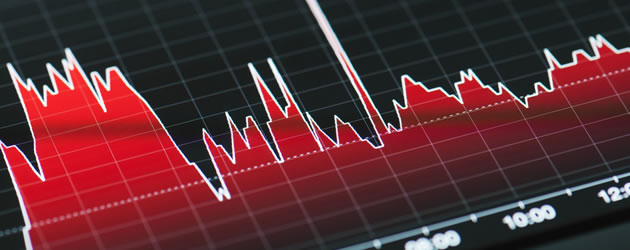 The UK is to expect petrol price cuts following the recent tumble in oil prices. The slide in the value of so-called ‘black gold’ and Saudi Arabia’s announcement that it planned to cut oil prices has seen commodity currencies like the Canadian Dollar (CAD) fall against other majors like the US Dollar (CAD/USD).
The UK is to expect petrol price cuts following the recent tumble in oil prices. The slide in the value of so-called ‘black gold’ and Saudi Arabia’s announcement that it planned to cut oil prices has seen commodity currencies like the Canadian Dollar (CAD) fall against other majors like the US Dollar (CAD/USD).
Saudi Arabia is the world’s No. 1 exporter of crude oil and an influential member of the Organisation of the Petroleum Exporting Countries (OPEC). It’s decision to slash prices action caused a problem for Canada, which sees over 75% of its oil exports destined to reach the UK.
Canadian Economy Hindered by Low Oil Prices
Bank of Canada (BOC) Governor Stephen Poloz had already stated before the announcement that if the price of oil didn’t pick up, Canada’s economic growth could be hindered quite significantly.
Poloz stated: ‘We would estimate that at this stage, that effect net on Canada would be to take perhaps a quarter point off Canada’s GDP growth for 2015, which is sufficient for me to think about it and be concerned about it.’ The news caused the Canadian Dollar (also known as CAD or ‘Loonie’) exchange rate to plummet.
UK Petrol Prices Should Drop as Global Oil Reserves Expand
Thursday saw UK Chancellor George Osborne state that the government would be eyeing petrol and diesel prices in the UK ‘very carefully’ to ensure that the drop in oil value reaches consumers. Prices of oil per barrel have dropped significantly, falling by almost a quarter from £72 to £52.
Osborne asserted: ‘Our message is clear – the oil price has fallen and we expect that to be passed on to people at the petrol station filling up their cars. We expect the oil companies to do this and we will be watching very carefully to make sure they do.’
However, the government has come up against some opposition, with campaigners suggesting that taxes make up the bulk of petrol prices and appealing to the government to reduce prices themselves rather than forcing petrol companies to do so.
So how much do UK consumer pay in tax for petrol?
The AA did some analysis recently to try to determine how much we pay for petrol in the UK and how much of that we pay in taxes. The AA concluded that if the average cost of petrol resides around 124.22p, VAT accounts for 20% of that and fuel duty costs 57.9p more, making a total of two thirds of petrol prices being a combination of taxes.
Such research has led to heavy debate and Experian analyst Arthur Renshaw claims that if the cost of VAT and fuel duty were abolished, we’d find that the actual price of petrol has sank by 21% in 2014 in comparison to 2013’s prices.
Pound to US Dollar (GBP/USD) Exchange Rate Alters Fuel Prices
Another important issue to bear in mind is that oil is traded in US Dollars (USD), a currency currently dominating in the foreign exchange market. Since the Pound dropped against the US Dollar (GBP/USD), UK consumers now get a lot less oil for their money.
So How Does the Falling Foreign Exchange Rate Affect Petrol Pricing in the UK?
During its peak earlier this year, the Pound to US Dollar (GBP/USD) exchange rate bought 1.7165 US Dollars per Pound. Now, the rate has softened by around 6.9% – meaning that the British currency only acquires $1.5898 per unit.
In September ASDA reduced prices to 119.7p per litre, the first dip to below 120.0p in the last four years.
UK Treasury Minister Danny Alexander stated: ‘I believe it’s called the rocket and feather effect. The public have a suspicion that when the price of oil rises, pump prices go up like a rocket. But when the price of oil falls, pump prices drift down like a feather.’
So How Much do UK Consumers Spend Relative to Other Countries?
Average unleaded prices per litre compiled by the BBC stand as follows:
Italy: £1.32
Netherlands: £1.29
Greece: £1.26
UK: £1.25
Finland: £1.24
Denmark £1.24
Ireland: £1.18
EU Average: £1.18
Although the UK doesn’t have the most expensive oil rates, we also don’t have the cheapest. On average, filling a small tank of petrol in the UK costs around £50.00. To replenish the same amount in Italy would cost almost £3.00 more. However, in a country like Venezuela it would cost only 0.63p to fill the tank.
The prospect of an oil price war may be with us for some time given the possibility of the US lifting the ban on crude exports. With more resources in the Arctic and developments in shale oil resources, the US could feasibly pump 14.2 million barrels (in comparison with the current 7.5m barrels) every day as soon as 2020.
This means lower petrol prices could linger amid ongoing competitiveness in oil values continues. Commodity currencies could suffer as a consequence, and countries with a close relationship to oil exports could see growth forecasts trimmed.

